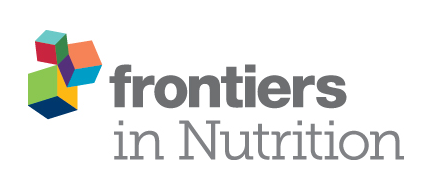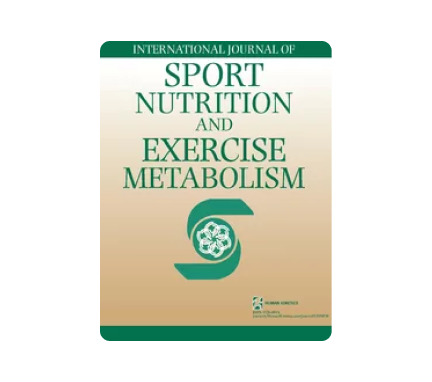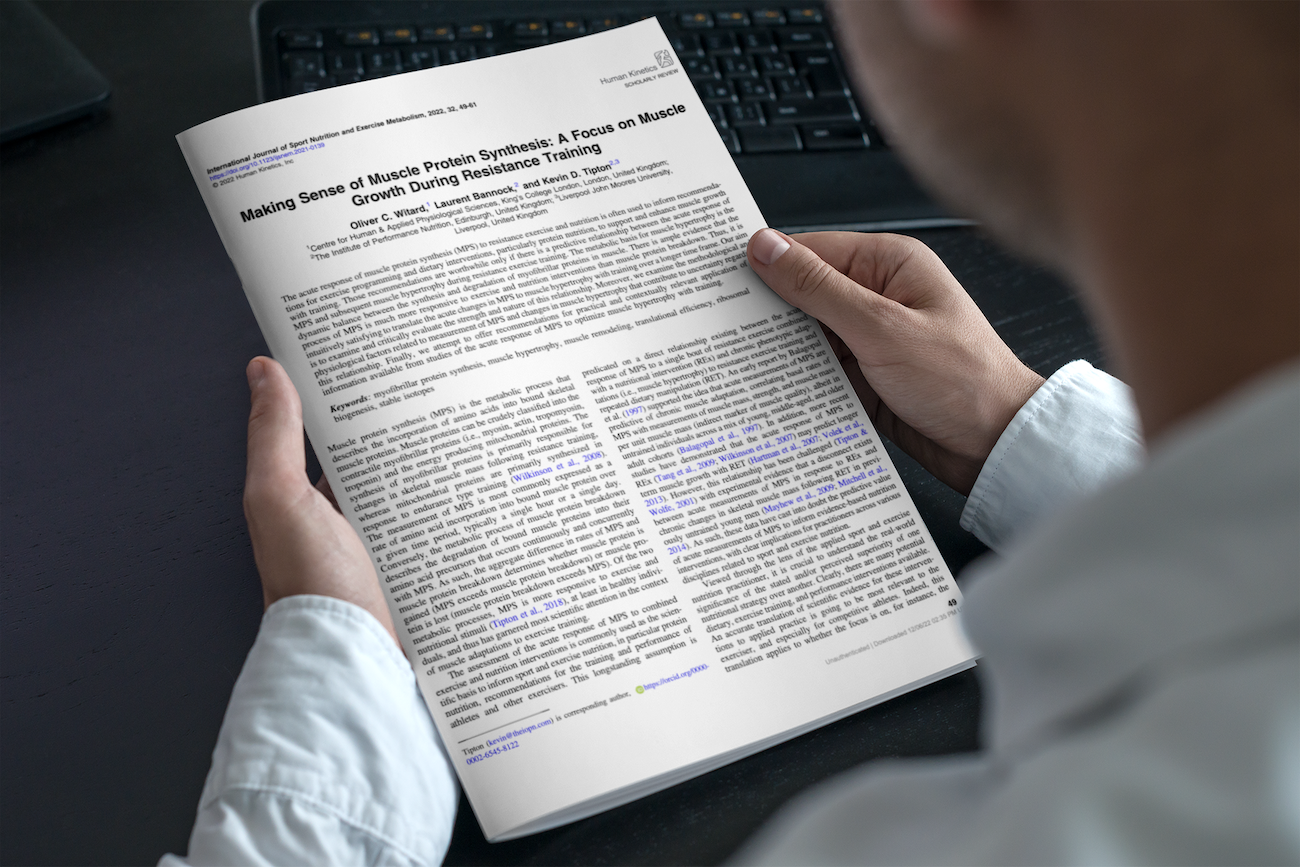Selected IOPN Publications
From semi-starvation to the stage: a case report on indicators of low energy availability in a drug-free bodybuilder during contest preparation and peak week
Journal: Frontiers in Nutrition
Authors: Alex J. Ritson (1), Lyle McDonald (2), Joseph Agu (3), and Laurent G. Bannock (1)
1) Department of Education, Institute of Performance Nutrition, London, United Kingdom;
2) Bodyrecomposition Ltd., Austin, TX, United States;
3) School of Medicine, University of Nottingham, Nottingham, United Kingdom
Date published: November, 2024
Natural bodybuilding competitions involve periods of low energy availability (EA) combined with resistance training and high-protein diets to achieve extreme leanness. This study tracked a drug-free bodybuilder adopting evidence-based nutrition practices during 18 weeks of contest preparation. We measured endocrine function, resting energy expenditure, respiratory exchange ratio, body composition, resting heart rate, oral temperature, mood, and strength performance.
Endocrine function was remeasured after 2 days of energy repletion. From baseline to week 18, free triiodothyronine (T3) and total testosterone (TT) fell into clinically low (2.7 pmol/L–1) and sub-clinically low (9.1 nmol/L–1) ranges. Resting energy expenditure decreased by −519 kcal (REEratio 0.78), and respiratory exchange ratio decreased from 0.95 to 0.85. Body mass reduced by −5.1 kg, with a sum of eight skinfold loss of −15.7 mm. Correlations were observed between body mass and decreases in oral temperature (r = 0.674, p = 0.002) and resting heart rate (r = 0.560, p = 0.016).
Mood remained stable until the final 2 weeks and relative one-repetition maximum decreased in the squat (−5.4%), bench (−2.6%), and deadlift (−3.6%). Following 2 days of modest energy repletion, free T3 increased (18.5%), returning to sub-clinically low values (3.2 pmol/L–1), whereas TT fell (−20.9%), reaching clinically low values (7.2 nmol/L–1). These results offer insight into the dynamics of T3 and TT following a short-term period of modest energy repletion and further information on indicators of low EA during chronic energy restriction.

Bridging the Gap: Evidence-Based Practice Guidelines for Sports Nutritionists
Journal: Frontiers in Nutrition
Authors: Alex J. Ritson (1), Mark A. Hearris (1, 2), and Laurent G. Bannock (1)
1) The Institute of Performance Nutrition, United Kingdom;
2) Manchester Metropolitan University, United Kingdom
Date published: March, 2023
Evidence-based practice is a systematic approach to decision-making developed in the 1990s to help healthcare professionals identify and use the best available evidence to guide clinical practice and patient outcomes amid a plethora of information in often challenging, time-constrained circumstances. Today’s sports nutrition practitioners face similar challenges, as they must assess and judge the quality of evidence and its appropriateness to their athlete, in the often chaotic, time-pressed environment of professional sport.
To this end, we present an adapted version of the evidence-based framework to support practitioners in navigating their way through the deluge of available information and guide their recommendations to athletes whilst also reflecting on their practice experience and skills as evidence-based practitioners, thus, helping to bridge the gap between science and practice in sport and exercise nutrition.

Making Sense of Muscle Protein Synthesis: A Focus on Muscle Growth During Resistance Training
Journal: International Journal of Sport Nutrition and Exercise Metabolism
Authors: Oliver C. Witard (1), Laurent Bannock (2), and Kevin D. Tipton (3)
1) Centre for Human & Applied Physiological Sciences, King’s College London, London, United Kingdom;
2) The Institute of Performance Nutrition, Edinburgh, United Kingdom;
3) Liverpool John Moores University, Liverpool, United Kingdom
Date published: October 2021
The acute response of muscle protein synthesis (MPS) to resistance exercise and nutrition is often used to inform recommendations for exercise programming and dietary interventions, particularly protein nutrition, to support and enhance muscle growth with training. Those recommendations are worthwhile only if there is a predictive relationship between the acute response of MPS and subsequent muscle hypertrophy during resistance exercise training.
The metabolic basis for muscle hypertrophy is the dynamic balance between the synthesis and degradation of myofibrillar proteins in muscle. There is ample evidence that the process of MPS is much more responsive to exercise and nutrition interventions than muscle protein breakdown. Thus, it is intuitively satisfying to translate the acute changes in MPS to muscle hypertrophy with training over a longer time frame.
Our aim is to examine and critically evaluate the strength and nature of this relationship. Moreover, we examine the methodological and physiological factors related to measurement of MPS and changes in muscle hypertrophy that contribute to uncertainty regarding this relationship. Finally, we attempt to offer recommendations for practical and contextually relevant application of the information available from studies of the acute response of MPS to optimize muscle hypertrophy with training.



